Raising Muscovy Ducks
This post may contain affiliate links, view our disclosure policy for details.
Raising Muscovy ducks is very easy. They are easy to care for, friendly and a great dual-purpose duck to have on the homestead. In this post, you’ll find all the information that you need about raising Muscovy ducks.
I’ve been raising Muscovy ducks for a few years now and I can tell you, hands down, it’s the easiest animal I have ever taken care of. Or in other words… They pretty much take care of themselves.
I started my Muscovy duck journey with two females (hens) and one male (drake) that my ex-husband picked up from friends and this trio multiplied very quickly and became a great source of food for us.
But there is so much more to Muscovy ducks than just food production! We are going to go over all the benefits of raising them and all the questions that you might have. Let’s jump in!
Raising Muscovy Ducks…
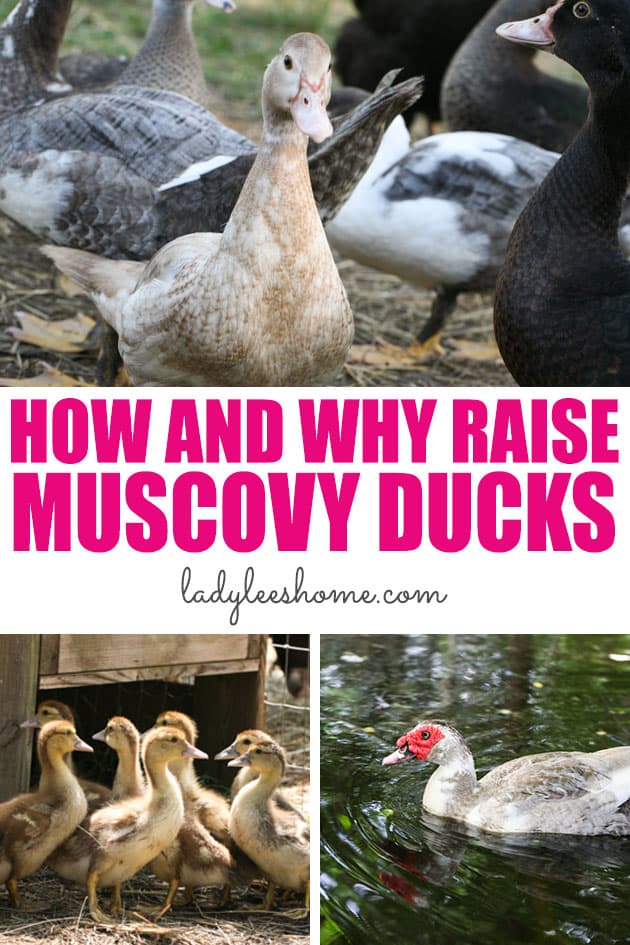
I am going to try to answer all the questions that you might have about Muscovy ducks. I hope that if you are considering this amazing breed of ducks this post will give you all the info that you need to make a decision.
If at the end of this post you have additional questions, feel free to post them in the comments.
Origin of Muscovy Ducks…
Muscovy ducks are native to South America and you can still find them roaming around wild in the jungles there.
Their original name was Musco ducks because they eat so many mosquitoes. The Russian Muscovites were the first to import them into their country and raise them domestically; this is where the name Muscovy came from.
They are the only duck that is not derived from the mallard duck. In fact, they are not considered a duck. They are a large waterfowl, something between a goose and a duck.
What do Muscovy Ducks Look Like?
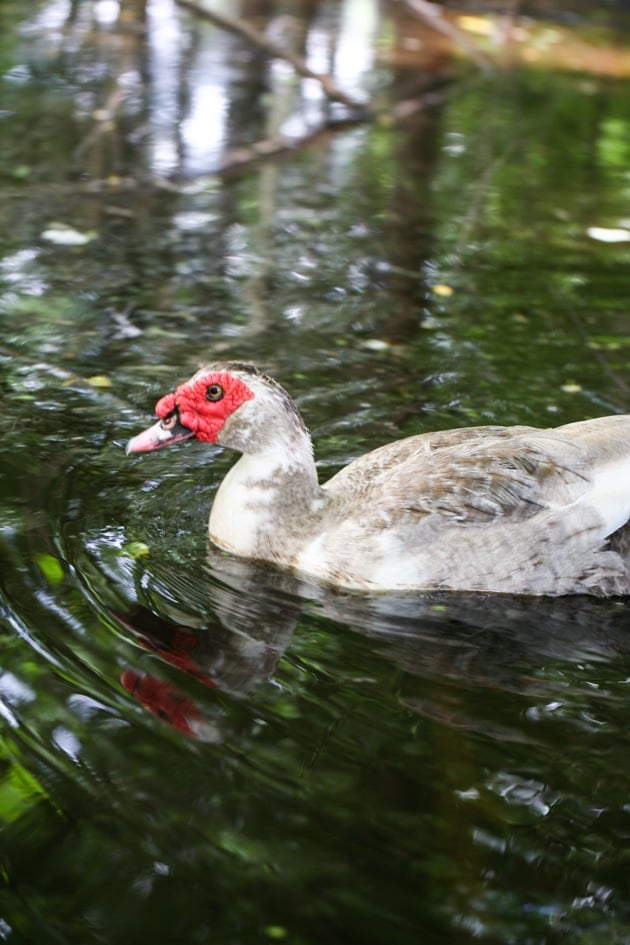
One of the most known characteristics of Muscovy ducks is their large red, warty caruncles on their head. They appear when the duck reaches maturity around 5-6 months of age. The male Muscovy has a larger mass of them while the female only has a red mask around her eyes.
Note that in this post, you’ll see a lot of pictures of my Muscovy ducks without the red, warty caruncles, this is because they are still young, probably around 4 months of age.
Muscovy males are large. They can reach 15 lb while the females are smaller and can reach about 9 lb.
Muscovies have many different and beautiful colors. They can range from black to brown to grey or white or tan and one duck can have more than one color.
Do Muscovy Ducks Quack?
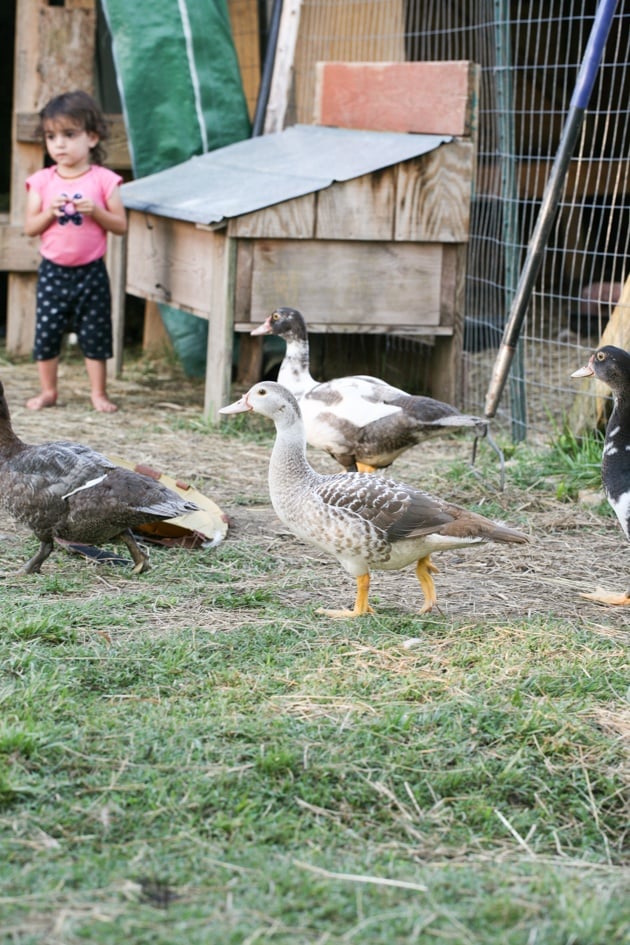
No! Muscovy ducks don’t quack. They do make a hissing noise mainly when they talk to each other but it’s not a loud noise. For the most part, they are very quiet ducks.
This might be a pro or it might be a con to owning Muscovy ducks depending on what you like. I generally prefer quiet! I owned Guinea fowl before and just about lost my mind with the amount of noise they made.
What do Muscovy Ducks Eat?
Muscovy ducks eat chicken feed, bugs, flies, mosquitoes, greens and kitchen scraps, bread and pasta, and fish.
If your Muscovy ducks are free-range, they don’t need you to feed them a whole lot even when they are very young. They will clean your yard of ticks and other nasty bugs.
You’ll see them eat some grass and other greens (yes! They will eat your garden if they can access it) as well.
But maybe the best thing about Muscovy ducks is that they love eating flies and mosquitoes! You’ll literally see the ducks catch the flies in the air as they fly by. When it comes to mosquitoes, they’ll either eat adults or they’ll eat them at the larva stage.
Let me tell you a story… I moved to my house in the country in 2016. The house was abandoned for 7 years. There was trash everywhere, standing puddles of water, and an overgrown lawn.
Right next to the house there is a pond. But it’s not really a pond, more like a swamp. It’s shallow and fills and dries depending on the rain.
A perfect breeding ground for mosquitoes, ticks, chiggers and so on.
Even though we cleaned the place, it was still impossible to sit outside on the porch, the mosquitoes were just unbearable! This went on for a year. Then, we got our three Muscovies… Within 3 months, the place was cleaned up completely.
Since then, I have maybe 10% of the flies that I should have with all the livestock around me and not a single mosquito in sight! For me, this is a great reason for owning these amazing ducks!
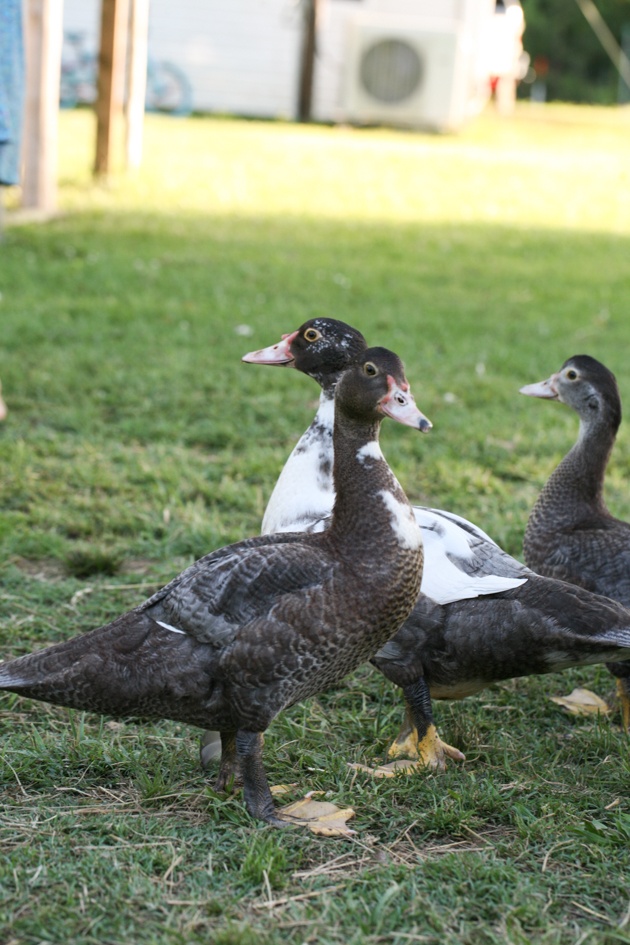
Even though they can forage and take care of themselves, I still feed my free-ranging ducks a couple of cups of chicken feed in the morning, just to get them used to me and to a routine.
If your Muscovy ducks live in a fence they will depend on you to feed them…
Ducklings – ducks grow very fast and so they need feed that is rich in protein. Non medicated chick starter feed with 20-22% protein is a good choice. Feed it free choice.
Young ducks and adults – I find that after the first three weeks Muscovy ducks can transition to adult feed with no problem. Feed 16% protein chicken layer feed either free choice or at least eight ounces per duck per day.
You can also feed your ducks corn, herbs, kitchen scraps, weeds, old bread, fish, old cheese, and so on.
Always make sure that your ducks have plenty of water! Muscovy ducks love washing themselves and they drink a whole lot. Like any other duck, they make a mess of the water so make sure to clean and change the water daily.
This is a great article on how to feed ducks if you want to dig even deeper.
Do Muscovy Ducks Need Shelter?
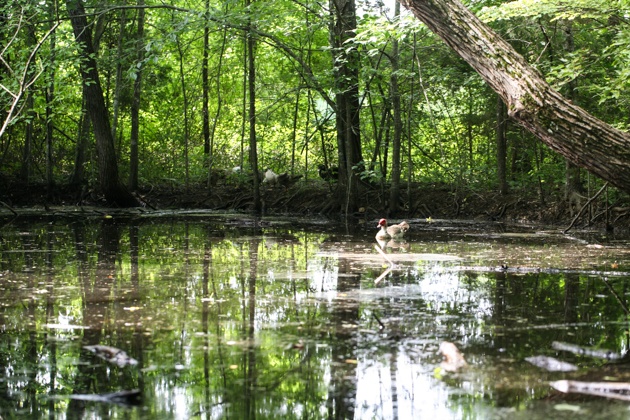
Muscovy ducks only need shelter for their nests or if you live in a very cold climate. They don’t mind the rain, they don’t mind the cold, they don’t mind the snow, and they don’t need you to supply them with roosting bars because they prefer the ground.
They are very hardy ducks and easy to care for! My ducks do have shelter but I never see them use it. I’ll see them stand in the rain and enjoy it. Even when we get some snow, they still stay outside.
Now, I am in the South and it never gets below zero here. We also don’t have a whole lot of snow. Maybe if you live in Alaska it makes sense to make sure that they have a protected place to hang out in during the winter.
However, they do need a protected place for their nests. Something like a nest box or access to the floor of the chicken coop or maybe access to an old shed or some sort of outbuilding. My free-ranged ducks love making a nest in my dog’s house! You’ll learn more about their nests below.
Are Muscovy Ducks Friendly?
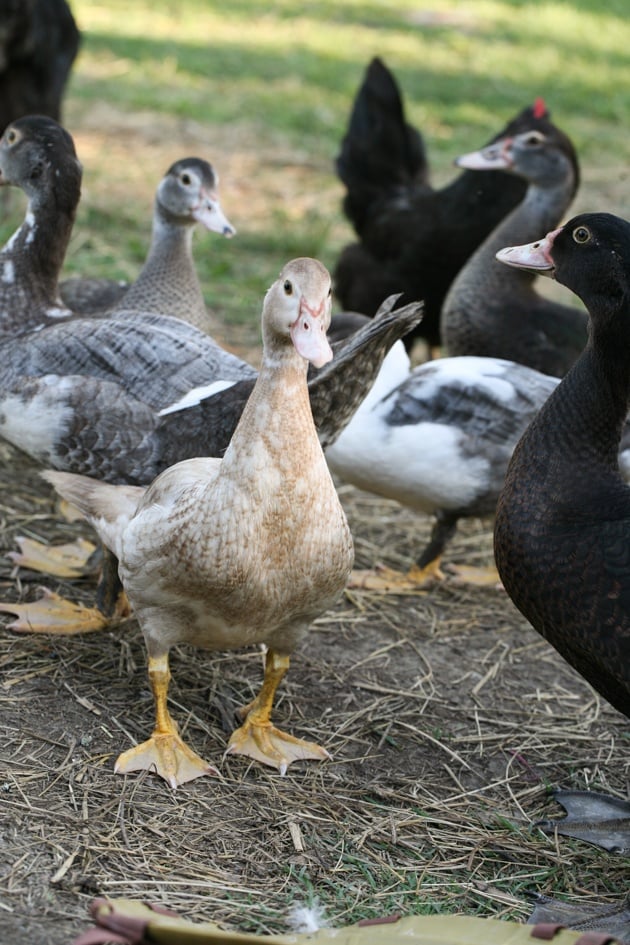
The only time that Muscovy ducks are not friendly is when they have their young with them. A mother Muscovy duck will try to make sure that no one gets closer to her ducklings. Other than that, they are VERY friendly ducks!
They will eat from your hand and follow you everywhere like dogs. They are very slow (which makes them easy prey if they are free-rangers) and easy to catch.
They generally get along very well with other animals! I raise my ducks around my dog and cat and they live with the chickens and goats.
They get along very well with the other animals. Usually, it’s the chickens that are mean to them and I need to keep an eye on and deal with a mean hen.
Between them, they get along very well. The only time that I had an issue was when I had too many drakes in one fence. They kept fighting with each other and with the roosters and I had to get rid of a few. This is normal behavior for most animals.
If your Muscovy ducks are fenced, make sure that you don’t have more than one drake for four hens.
When do Muscovy Ducks Start to Lay Eggs?
Muscovy ducks start mating and laying eggs around 7 months old. The female chooses a location for her nest and keeps coming back to the same nest. If you have a few females, each one of them will have her own nest.
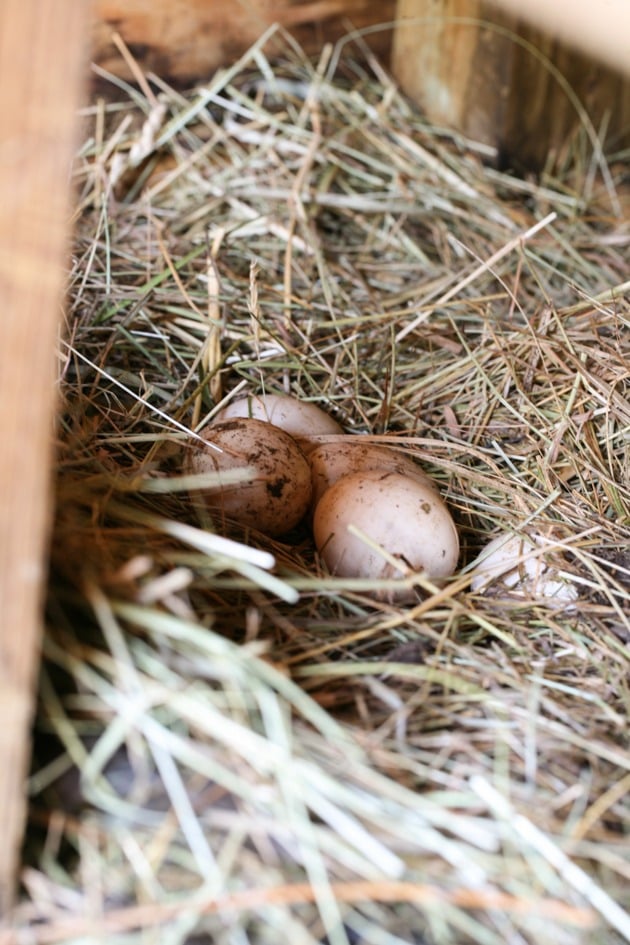
They mostly make their nests on the ground in a protected area. They might choose to make their nest under the goat’s milk stand, in an empty bin, or under the wooden pallet that holds the hay bales.
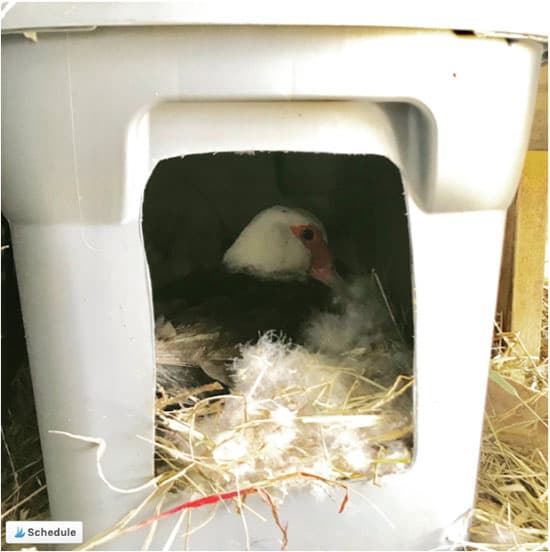
They pluck some of their breast feathers and use straw to make their nest.
They lay one egg a day in that nest and if you leave the eggs in the nest, the hen will start sitting on the nest when it has 6 or more eggs. Most of my hens go broody when the nest is 12 to 17 eggs large.
It takes 35 days for Muscovy duck eggs to hatch. During those days the hen doesn’t always stay on the nest. She might leave the nest for a little while and go to eat or wash.
This might be a little strange if you are used to chickens. Broody hens will not leave the eggs and chicken eggs have to keep a certain constant temperature in order to hatch.
At first, when I saw my broody Muscovy hen get up and leave her nest I thought that the eggs were ruined. But trust the duck and don’t touch the eggs! She will be back and all will be fine. She knows very well what she is doing!
You can watch a video of my first Muscovy ducks hatching on YouTube HERE.
Muscovies do not lay eggs year-round. They start when the weather starts to get warm in the spring and stop when the weather cools down. Here in the South, their season is between March to October. Then they will take a break for the winter.
During their season, they can sit and hatch two to three nests. If each nest has 10-15 eggs in it you can imagine how fast the Muscovy population in your homestead can take off.
I manage that by collecting some of the eggs and butchering some of the ducks.
Are Muscovy Ducks Good Mothers?
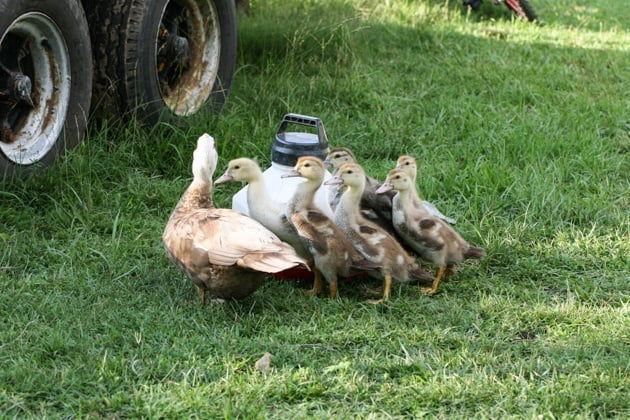
Muscovy ducks are the best mothers. They take very good care of their young and they are very protective of them. In fact, Muscovy mothers are pretty aggressive and won’t let anyone close to their babies!
Once all the eggs hatch the mother will spend two more days in the nest with the babies. She will clean her babies and won’t leave them for a moment. She doesn’t show up for feeding those days and I don’t feed her or bring her water. I just let them be.
After a couple of days, they will leave the nest and just walk around. Sometimes they come back to the nest for the night and sometimes they find another spot.
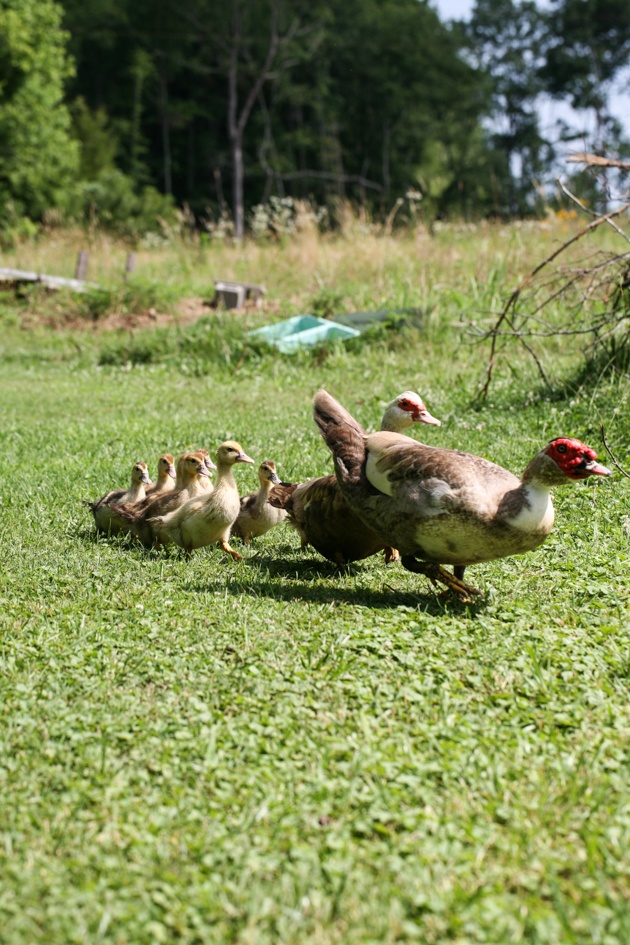
The young ducklings will always stay behind their mother. If your ducks free-range they’ll walk around and hang out by a water source like a pond if one is available.
Take into consideration that the little ducklings are very easy prey. Many times I had mothers go into the woods with 10 ducklings and come back with 6.
You can choose to grab them after they hatch and move them to a brooder for a few weeks for their protection. Make sure to relocate the mother as well so she knows where her ducks are.
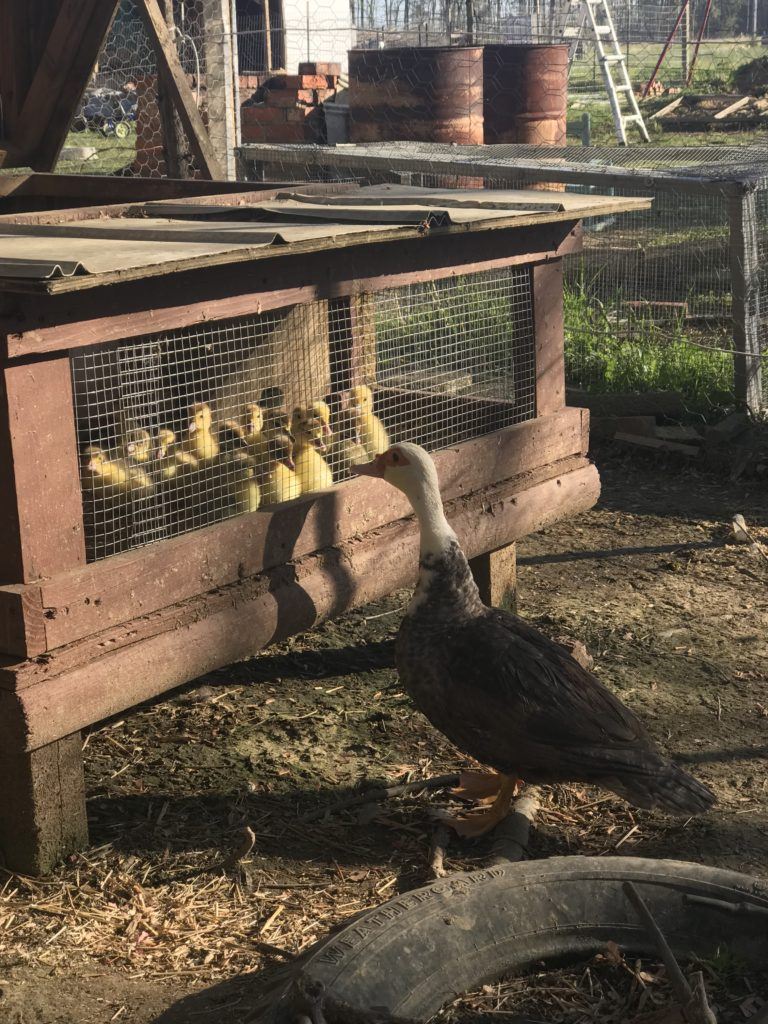
I sometimes move them to a brooder that has an open top. This way the mother can fly in and out. She can go wash and eat and come back.
If your ducklings don’t free-range, you’ll have to make sure that they have water and feed. Make sure that the water dish is not deep. They will most likely play in the water and if it’s deep and there is no easy way for them to get out they will drown.
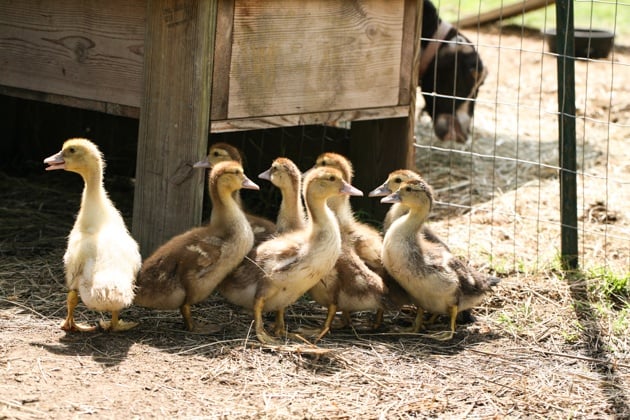
Ducklings grow very fast and somewhere between four to six weeks they no longer need their mother. She will take a little break and then she’ll start mating and laying eggs for the next nest.
How to Tell the Sex of Muscovy Ducks…
When Muscovy ducks reach maturity it’s easy to see which one is a hen and which is a drake. The drakes are considerably larger than the hens and they have a larger mass of red caruncles on their head.
When they are young ducklings, sexing is a bit more difficult. I look at their tail. The drakes will have a much fatter tail than the hens. Still, it’s not easy to sex them when they are young.
This video will show you how to sex day old ducklings. I’ve never tried it but this might be a reliable method.
Do Muscovy Ducks Fly?
The drakes can fly but not very well since they are pretty heavy-bodied. I see my male ducks fly very low, just a few feet off the ground and not very far or often. The Muscovy hens fly very well.
The hens fly all over and around the homestead and often land on the roof of the house and just hang out there for a while, walking from here to there.
It’s very cute to see them up there on the roof but not always a great thing… I have a friend that is now dealing with a leaking roof because the ducks messed with the seal around the vents.
If you don’t want to have your ducks free-range and fly and prefer for them to be fenced and not fly around, you can clip one of their wings just as you would do with chickens. I show how to do this in my post about clipping chicken wings.
Will Muscovy Ducks Fly Away in the Winter?
Muscovy ducks don’t care much about the cold and even though they are a wild kind of duck, they are also very domesticated and love having a home. They don’t fly away in the winter.
I have never had my ducks take off even though they were free. They love staying around the house. They come back every morning to eat the feed that I throw on the ground for them. They make their nests around the homestead even though they can go and find a hollow log or a bush nearby.
I do get emails and comments from people who walked out of their house one day and found a Muscovy duck by their pond (check the comment section of this post). So I guess that sometimes they do fly around but for the most part, if you provide them with a good home they will stay around the homestead.
Raising Muscovy Ducks For Egg Production…
Muscovy ducks are not an egg-laying machine. Not at all and I don’t recommend choosing them if egg production is your main goal. A hen might lay 80-120 eggs a year.
Don’t get me wrong, their eggs are amazing. They are the size of a very large chicken egg, the shell is creamy white and very strong, and the yolk takes most of the space in the egg. Their eggs are rich and very tasty.
We eat their eggs just as we eat chicken eggs and I also use them for baking (they make the best baked goods! I use them in my pumpkin bread, sweet potato bread, apple cake, challah bread, or any other bread or cake that calls for eggs).
They just don’t lay a ton of eggs which is the reason that I won’t keep them mainly for egg production.
Raising Muscovy Ducks For Meat Production…
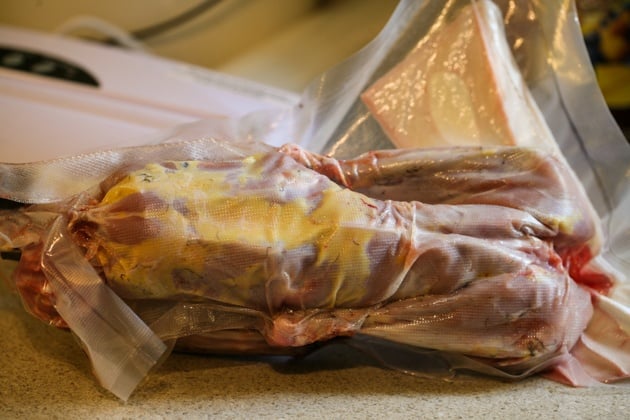
Muscovy ducks are a great source of meat especially for those of us who are looking to become more self-sufficient. They might take a little longer than other breeds of ducks to mature but they lay, hatch, and care for their own young.
Here is the thing… Meat breeds can’t reproduce. So, if you raise Cornish Cross chickens, for example, you butcher them at 8-9 weeks and you have to turn to the hatchery to purchase your next batch of meat chickens. You are depending on the store.
If you don’t want to do that and you decide to raise a heritage breed that moves around, behaves like a normal chicken, and can reproduce (I chose Black Australorps), you are probably looking at 6-8 months for those chickens to reach their full size.
Muscovy ducks are not engineered, they can reproduce very well (one hen can hatch 30 to 50 eggs in a season), they are great mothers (saving you all the work of raising babies), AND they reach butchering size in 3-4 months old. Half of the time that it takes a heritage chicken.
Add to that the fact that their meat is great… Mostly dark meat and very lean (98% fat-free) making it a very healthy kind of meat and you have a great duck for self-sustained meat production.
Also, you should know that Muscovy duck meat is Kosher. So if you are Jewish and follow a Kosher diet, these ducks are a great source of meat. If you’d like to learn more about why Muscovy ducks are Kosher, this is a great article.
Butchering these ducks is exactly the same as butchering chickens or butchering turkeys. Here is a step by step tutorial on how to butcher a duck.
Muscovy Ducks: Pros and Cons…
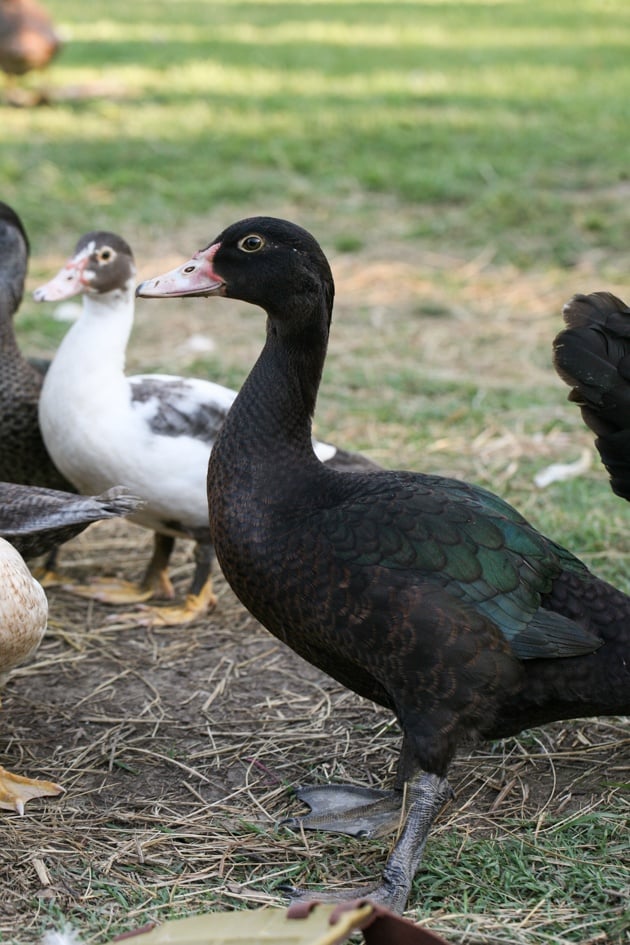
I know that this was a lot of information! Let’s make a quick list of pros and cons of owning Muscovy ducks so you can decide if they are for you…
Muscovy ducks pros –
- Friendly birds – they are friendly (apart from when they care for their babies) toward humans and other farm animals.
- They can help you control the fly and mosquito population – if you raise cows or other livestock you should consider adding a few Muscovies to the farm. They will reduce the fly population dramatically. Also, it might be a good idea to raise Muscovies in the bee yard if you keep bees. They’ll protect the hives from crawlers, wasps, and so on.
- They eat ticks and other parasites – they can help clean your yard.
- They don’t scratch or dig – as opposed to chickens, Muscovy ducks don’t scratch, dig, and make a mess.
- Great eggs – their eggs are the size of a large chicken egg. Large yolk, rich, and very tasty.
- Great meat – their meat is 98% fat-free, dark, and delicious. It is also Kosher.
- Great mothers – Muscovies will take care of their babies, saving you the need to hatch or purchase and raise ducklings.
- Quiet – they don’t quack. This may be a pro or a con for you.
Muscovy ducks cons…
- Slow, easy prey – if your ducks free-range you might lose some to predators.
- Don’t lay many eggs – around 80-100 a year.
- They fly – this might not be an issue for you but take into consideration that they can land on roofs and poop and such.
- They poop a lot – oh well, this is true for any duck… They just poop a whole lot!
I hope that this post gave you enough information to decide whether you want to raise Muscovy ducks or not. They are a great breed of duck to add to any homestead in my opinion.
If you have any questions, please feel free to post them in the comments. If you are raising Muscovy ducks please share your experience with us in the comments below.

Hi! I’m Lady Lee. I help homesteaders simplify their homesteading journey while still producing a ton of food! I am a single mother of four, I was born in Israel and raised in an agricultural commune called a Kibbutz. Now I homestead in central NC.

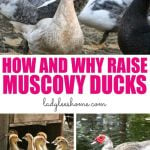
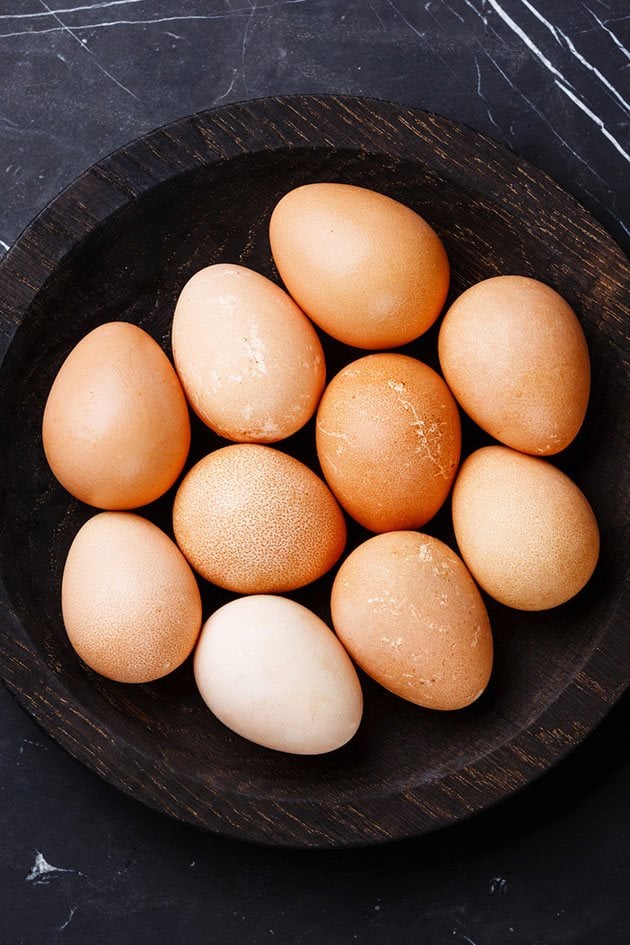
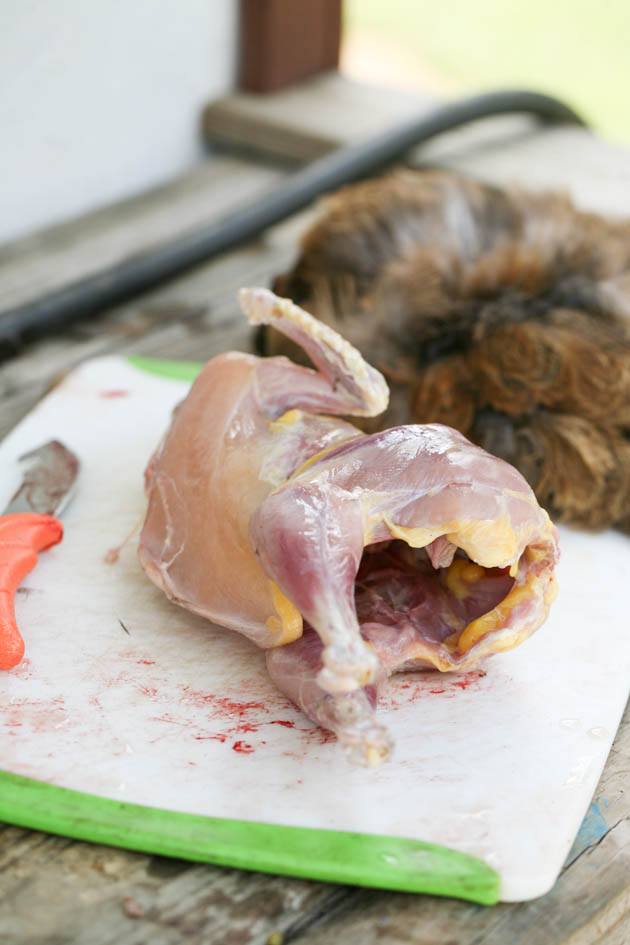
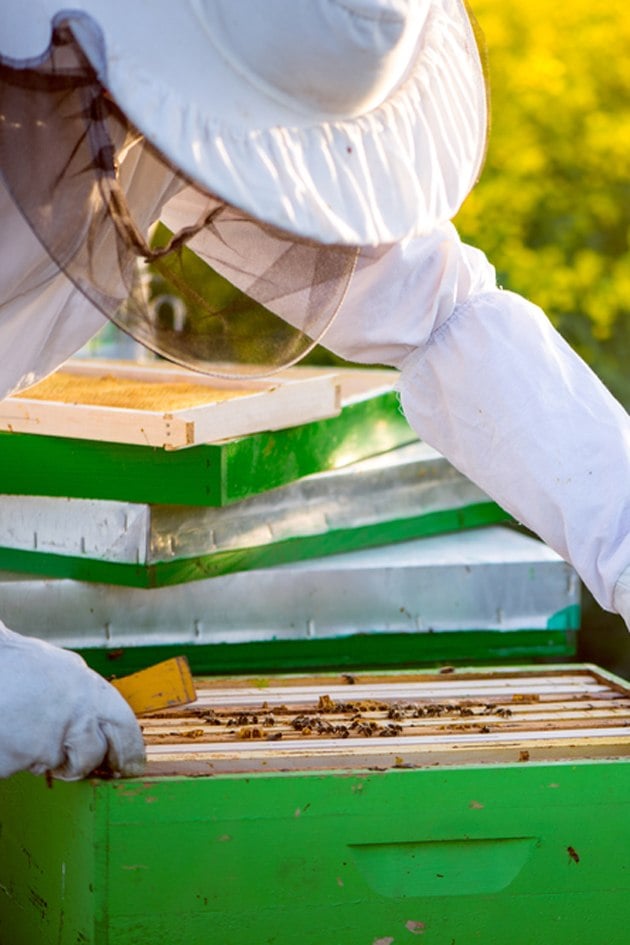
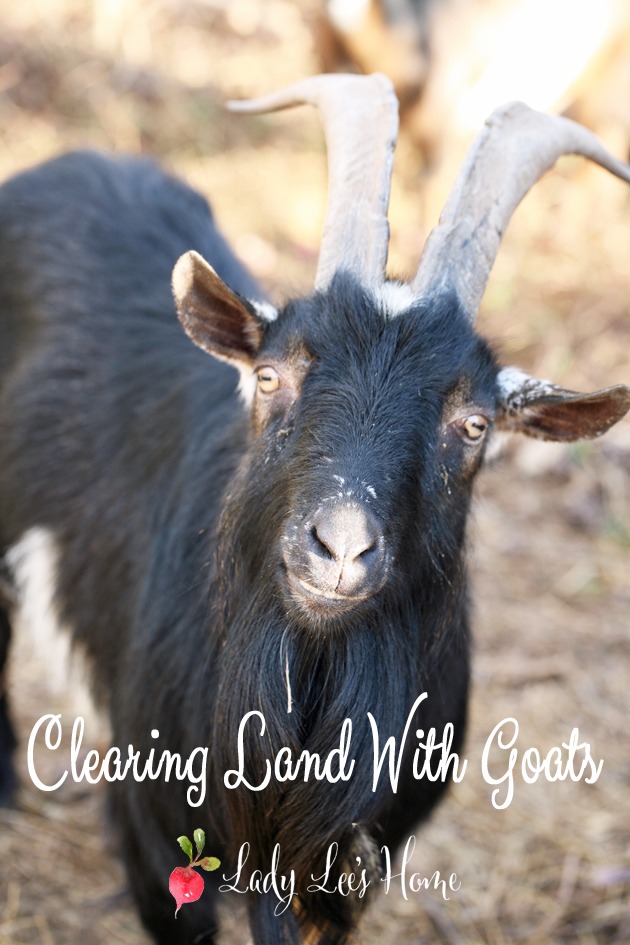
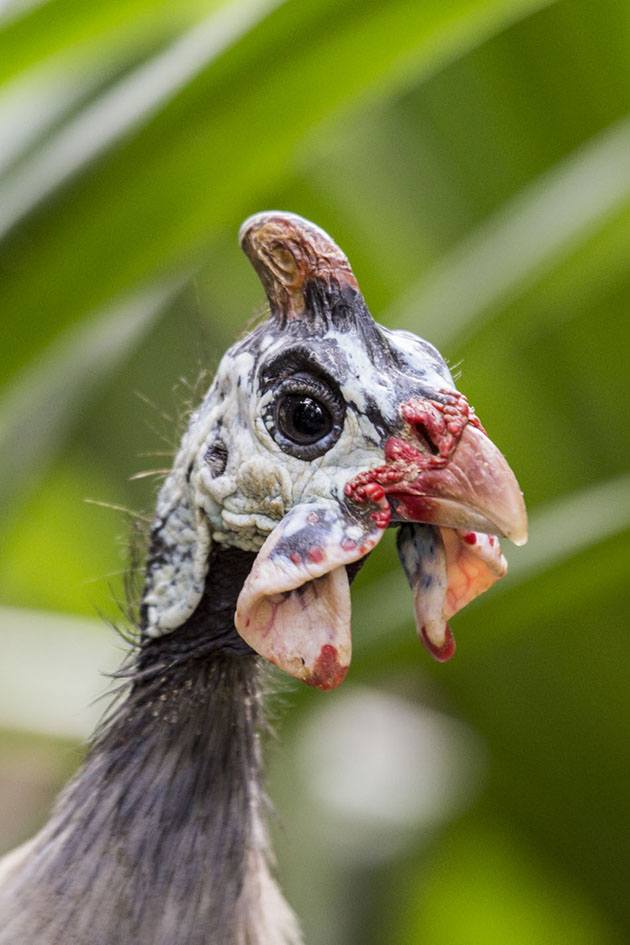
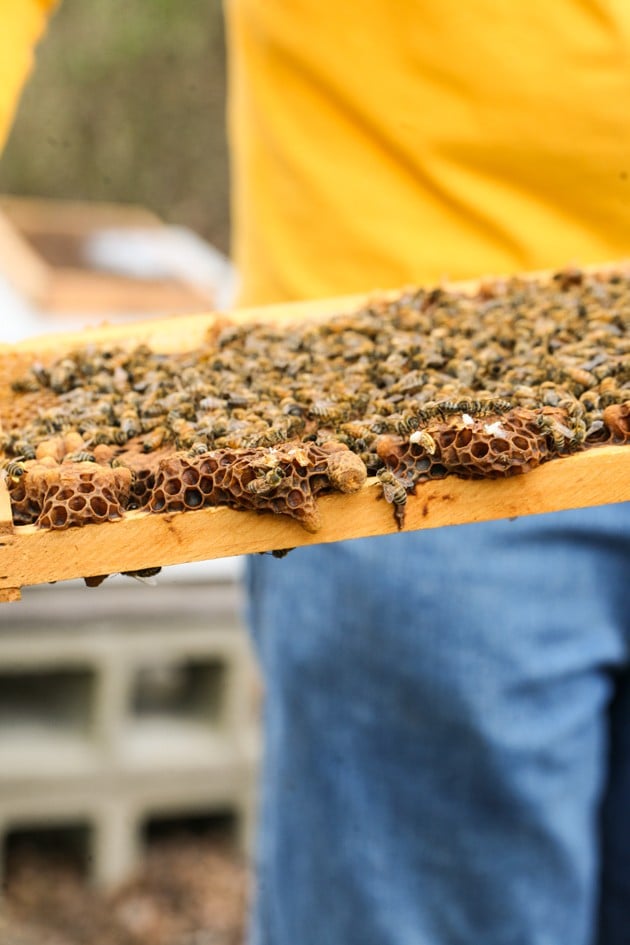
I have a 2x3x4h cage. Can I raise one in that from 1wk-2/3mo(few lbs.)?
We’re on 1/4 acre with 1/3 of that privacy fenced. We have several cats that would most likely not mess with it to bad after being around it a while with direction of behavior. They may wanna play or they may forget their manners, either way I would like it to be big enough to handle a lil bit before roaming about in the yard.
Should be fine for a few weeks. You’ll notice that they grow up really fast. But I am guessing that for the first couple of months it should be fine. Also, you can always take it out of the cage once a day or so and let it roam, supervised, in a bigger enclosed area.
Just an outstanding article. We’ve had Muscovies for 3 years.
The one thing that we didn’t expect, particularly my wife, was the aggressiveness of drakes during mating season. They are very aggressive towards females and can fight amongst themselves. It got to a point that we only have females now.
I find that they fight less is they free range and if there are enough females around which makes sense, of course. But yes, I witnessed a few very long and nasty fights…
Thanks for the great article. I just got myself 3 Muscovies 2 months ago. So far, I love them. They really do follow me around like dogs. They are only a little over 2 months old and already looking like adults other than the redhead (they haven’t gotten that yet). Since they will not be reaching 7 months old until around November, I guess I won’t be getting any babies until next spring, but that is alright. I plan on building them a small duck pond before then anyway. We have a pond down in our field (and they may eventually make their way down there), but I prefer them closer to the house for safety reasons. Thanks for all the information. Looks like I chose to get the right breed of ducks.
They are amazing. I think that you’ll like them. And yes, probably no babies until next year but next year you might go from 5 to 50 in a season lol. So get ready!
Hello Lady Lee. Thank you for this great article. We have been raising Muscovy for 3 years now and the past 2 summers we have had ducklings anywhere from 1 week to 8 weeks old just start to slow down one day and eventually die where they are sitting. Last year we think they were poisoned from getting adult feed too early (too much calcium) but this year we are giving them chick feed and we supplement their chick feed with niacin occasionally. No idea what could be happening. Has this ever been an issue for you?
Thank you! D HOMESTEAD IN MAINE
No, never. I actually always fed them whatever my adult chickens eat, never chick feed or anything special… Are any of the other animals looking off?
hi I have 6 muscovies 6 to 8 wks young…2 of them are attacking the other 4 I had to separate 1 so it would live and thank goodness it did…I was just curious if you might know why this is happening
thank you in advance
Mmmmm… Never had this happen. Do you know if which one is a female and which is a male? Are the males the ones attacking?
We just purchased some adult Muscovies about 3 months ago. They almost immedatly started laying and then started sitting. One is sitting on one nest and hasn’t hatched yet. The other 3 hens all are sitting on one nest together. Is that normal? Yesterday some ducklings hatched. We found one dead in the coop and think it was probably killed by one of the males. There are at least 4 other babies. All three hens are still in the nest with the babies. We have temporarily blocked off the area so the males can’t get to the babies and intend to move the mother(s) and babies to a safer location. Probably a chicken tractor in the barn. Do we move all three hens or try to figure out which is the real mother and just move her and the babies. It is the strangest thing I have ever seen though made for some great pictures. Last night all three seem to be taking care of the babies. Would it be better to just move the babies? We have not let any of our Moscovies free range yet because the first night we had them, we had a terrible thunderstorm and one hen escaped and never came back though we did see her fly around a few times. Have not seen her in a while. Was afraid we would loose all of them. Having them forage for bugs and such was one of the reasons we chose Muscovies and so we really want to let them free range but not sure what to do. Maybe now that they have been with us awhile, they wouldn’t leave? They seem happy with us and are well taken care of and we love having them. I would appreciate any advice you can give me about letting them free range and about the babies. I appreciate all the info in this post. Lots we didn’t know before getting our Muscovies.
They are great mothers and do do funny things sometimes.
Once, I had two ladies that were sitting on two different nests. One ran into the road and got killed by a car. The other hen took over her nest and started moving between the two nests!
Then, I had two hens that decided to raise their babies together. You couldn’t know which baby belonged to which mother… The both of them were just constantly with all the babies.
I never had a few ducks sitting on the same nest but I am not surprised.
I have to say that I don’t believe that one of the males killed the baby. Some times they just don’t make it. It’s nature but I’ve never seen them aggressive towards their own babies.
If you feed them in a certain time of the day, they should be fine free-ranging. Mine stay close and come back for feeding time. They also always make their nests around the feed room. I don’t think that they’ll leave, however, nature is nature… Some don’t make it.
If you move the nest, nove all three females. I don’t think that there is a way to know who laid the eggs in the nest.
Wonderful post
Hi Lee, I appreciate your help in answering this question. I have a Mule Duck. My question is can it lay eggs? Drake was a huge Muscovy and Hen was a Rouen Duck. It is beautiful and I wanted the eggs to eat as I know they will be sterile. Some articles say they can while others say they cannot. Which is right? Thanks for your time and answer. I appreciated your article. I love my Muscovy Ducks.
Mmm… I am not sure. She is supposed to be able to lay eggs and you are right, they will be sterile but should be good to eat. How old is she? She is supposed to start laying around 5-6 months or so. She might not start until spring though. I guess that you’ll just have to wait and see…
We live on 6 acres in the country with a pond in Louisiana. A few months ago a lone muscovey female found us – she’s adorable! She paddles around the pond all day, eats bugs, bird seed, etc…, naps on the bank and at night fall she flys away and is back in our pond by day break.
My concern is, how can we help to protect her from predators…hawks, coyotes etc… since we don’t have a structure or a man-made shelter for her? We’re hoping that you can offer some ideas for a simple shelter, but we’re not dying to build a fenced large duck yard. We would love to encourage her to stay and hopefully in March she’ll begin laying eggs.
We’d appreciate any advice that you can provide to us.
Many thanks, ~Kiki
It’s tricky because they really do have a wild nature.
The good thing is that she is a female and so it’s easier for her to fly which means she is able to protect herself better.
Most of the danger is at night. If you can get her used to being fed at night in a fenced area or if you have a chicken coop and you can get her used to eating in there, maybe you can close her in for the night. But again, it’s tricky because they are wild.
Hi! I am a new duck mom. We rescued a Muscovy who had trouble hatching. We hatched the baby from its egg. Up until last week the baby was friendly. Now it nips toes and arms regularly. Yet them the baby will sit on your lap when it’s not in nip mode. Is this part of our growing up stage or should I be worried. We love the baby sooo much but the biting has to stop.
Probably just a part of growing up. The more you handle him the friendlier he will be but do remember that it’s a wild animal after all.
Baby was handled by us from the minute she came out of her egg. She had no one but my kids, husband and I. She would follow me down the street, go in her baby book bag carrier for rides, sleep on my chest for hours and even had her own fleece blanket that she k ew to put herself to sleep on. I get that she is a wild animal, I just don’t understand the sudden change in attitude. It’s a bummer. I keep working with her but she is biting with vengeance.
Hello from Maryland – just had a duck fly into my yard and has been here a week now. She stays in my pool most of the time. Covering the pool next week so I assume she will fly away. We love watching her out there but I am glad we are not wanting to us either pool because of the poop! I am leaving her apple, peas and lettuce. Should I get some duck food?
Thanks,
Jen
Mmmm… If you feed her she might stay! That means that the poop stays too 🙂 They are amazing ducks, but like most ducks they can make a mess. I kinda have a feeling that she isn’t going to leave you…
Hi Lee, I read your post on Muscovy ducks it was great. I’ve raised Muscovy ducks in the past and yes they are wonderful ducks to have. I like all your information and video on them. I will continue to follow your post on your homestead . Thank You.
So happy it was helpful! Thanks for stopping by.
Hello, and thank you for the article. I received a baby Muscovy from a friend in Jacksonville, Florida. She found the baby during the Jacksonville Muscovy slaughter and raised him but she could not keep him. So I took him here to my farm. I have chickens and a few ducks and geese. From the start I realized that’s not your regular duck. For the most part he keeps to himself and acts with us pretty much like a puppy: wags his tail, talks to us and follows us everywhere. Although he’s a male, he flew on the house a few times haha. Very sweet duck and very friendly. We call him our dugg because he’s more like a dog than a duck. He loves his pool though and splaahea a lot. But he doesn’t mingle with the other birds. So my husband ordered two Muscovy ducklings a few weeks ago. I got them today and I realized I don’t know if they need a heating plate like the chickens do. I have them now in a big bird cage and they took to the water dish right away, starting to splash and getting very wet. Replaced the dish with a more narrow one (first one was very shallow but quite wide). They’re splashing in this one too. Should I take the effort to keep them dry or let them play? It’s very hot here in Florida, I really don’t think heating plate is necessary but for the hatched chicks I usually provide one
Let them get wet and play! If it’s hot there I don’t think that they need a heat lamp. Sounds like you have a sweet male there. I hope he’d like his new friends.
I want to free range but don’t want them to fly on my roof or any roof.. I would just clip their wings,then? Also, will they go into their coop at night similar to chickens?
Thanks
If they are free-ranging, they have to have a way to protect themselves, flying is one of those ways. So unless they are free-ranging in a protected area I think that it’s not fair to take away their ability to fly and you might lose them to preditors.
They don’t go in the coop every night the way chickens do but they come to food, so if you want them to go in a certain place at a certain time, just feed them there.
Thanks for the article.I am new to keeping poultry and based in UK.This has helped me to decide to get the Muscovy.A good bug catcher and quiet too is a bonus.Regards John
They are amazing ducks! I think that you’ll like them. Thanks for stopping by!
I have lots of slugs and snails here is Hawaii. I have heard Muscovy ducks love to eat slugs and I am thinking of letting them roam my garden for part of he day. Has that been your experience? I am open to suggestions!
I almost don’t have any slugs in my garden… I wonder if it is because of the ducks. The thing is, they love eating the garden! They’ll eat lettuce and other green and they go for the top of the carrots and the cucumbers and squash… So, I’m not sure it’s a good idea.